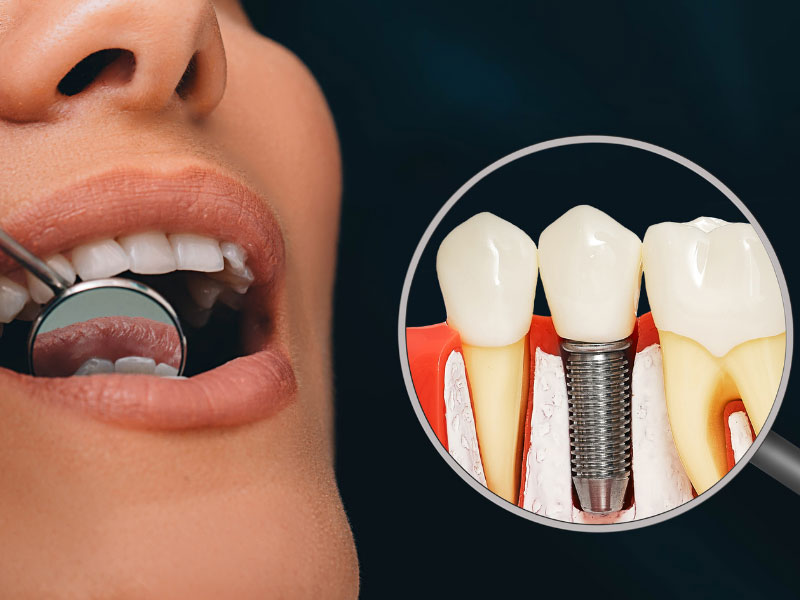Creating a Stable and Comfortable Smile with Implant-Supported Dentures

When a Smile No Longer Feels Like Your Own
There’s a subtle discomfort that creeps in when teeth are missing—something beyond the physical. Of course, there’s the practical difficulty of chewing, and the challenge of clear speech. But over time, what tends to wear on people most isn’t the mechanics—it’s the loss of confidence. A glance in the mirror doesn’t reflect the same person. Meals feel more like tasks than pleasures. Laughter becomes guarded.
For many, removable dentures provide a first solution, but they don’t always offer lasting comfort. They can move in ways that are unexpected or make simple actions feel strange. And for people who have worn them for years, the jawbone slowly getting thinner underneath can make them uncomfortable and make them look like they are sinking. If this story feels familiar, implant-supported dentures may offer something more permanent—and more personal.
The Hidden Cost of Conventional Dentures
Standard dentures are shaped to fit on the gums and stay in place with suction or glue. They can bring back the basic function of missing teeth, but they don't fix what's wrong underneath. When a tooth root is lost, the body begins to reabsorb the bone that once supported it. Over time, this leads to a shrinking jawline and a changing facial profile—often quicker than most people expect.
As the shape of the mouth changes, dentures lose their fit. What once felt snug begins to shift. Some people find themselves adjusting their dentures multiple times a day, always aware of that slight instability. Speaking can become a performance. Eating, a chore. Social interactions, something to navigate with caution.
That kind of uncertainty can take a toll. And while denture adhesives can offer short-term help, they don’t solve the root of the problem—literally or figuratively.
A New Approach That Starts from Within
Implant-supported dentures are different. Instead of sitting passively on the gums, they connect to small titanium posts placed in the jawbone. These implants function like artificial tooth roots, anchoring the denture and stimulating the surrounding bone—helping to prevent the **resorption** that causes many of the long-term issues traditional denture wearers face.
Depending on the case, as few as two to four implants may be used to support a full arch. Some dentures can be taken out at home to be cleaned, but others are fixed in place and can only be taken out when you go to the dentist. Both styles are much more stable than traditional ones. The choice between them depends on your lifestyle, dexterity, and medical needs.
The first step is imaging, which usually involves three-dimensional scans, to find out how healthy the bone is and where the best places for the implants are. After being put in place, the implants fuse with the bone over the course of several months, making a strong base that feels very natural in everyday life.
Everyday Moments, Restored
Patients who switch to implant-supported dentures often describe their experience in unexpected ways. It’s not just about biting into an apple again, or enjoying a steak without hesitation—though those are common milestones. It’s also about returning to small routines that used to feel effortless: smiling during a conversation, eating in public without self-consciousness, even falling asleep without worrying about where your denture is.
There’s a kind of freedom in not thinking about your teeth all the time. And that freedom can have a quiet but powerful effect on how you move through the world.
Aside from comfort, there's how it looks. The jaw keeps its natural shape because the bone is being preserved through constant stimulation. This can help keep the volume of the face by supporting the lips and cheeks in a way that regular dentures can't. The denture itself can also be made to look very real, with the shape and color of real teeth instead of a generic replacement.
Is Implant Support Right for Everyone?
Implant-supported dentures have a lot of benefits, but they aren't always the best choice. A patient needs enough bone volume to hold the implants in place, and the time it takes to heal is also important. Some health conditions—such as uncontrolled diabetes or certain autoimmune disorders—may influence the decision-making process. But thanks to advances in planning and placement techniques, many people who were once told they weren’t candidates are now eligible.
What’s essential is a full evaluation. That includes a detailed medical history, imaging, and a conversation about goals and expectations. It's not a one-size-fits-all process, and that's a good thing. The best results come from carefully tailoring it to your needs.
There is also a promise to keep things up. The tissue around the implants needs care, even though the implants themselves are strong and last a long time. That means brushing and flossing every day and going to the dentist every so often, just like with natural teeth. If you take care of your implant, it can last for decades. The denture can also be adjusted or relined if necessary.
A Smile That Stays With You
The decision to pursue implant-supported dentures isn’t always made overnight. But for those who make the switch, the difference is often felt in the quietest ways. Eating becomes fun again. Smiles come back right away. And the person in the mirror starts to look more like someone I know.
This kind of care isn't just for teeth; it's also about bringing back comfort, safety, and a sense of self.
If you've been thinking about getting implant-supported dentures, we encourage you to set up a consultation. We can help you figure out the best way to improve your long-term health and confidence by walking you through the process and answering your questions.
Call (407) 777-2071 to learn more and begin the conversation.
